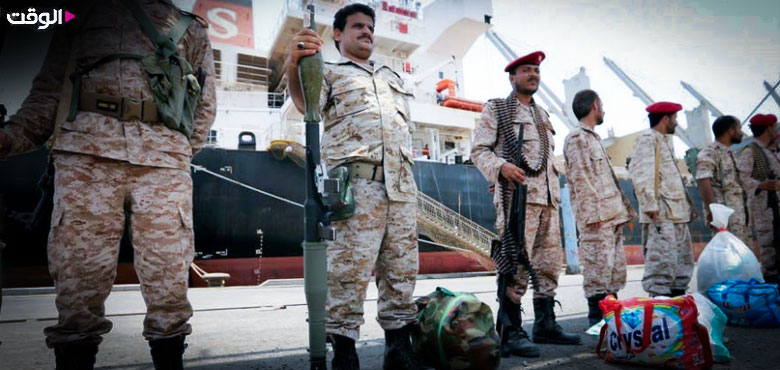Alwaght- The Yemen war has now reached a highly sensitive and decisive juncture that signals conflict is heading to an end. Over the past year and during various war stages, the political experts and media predicted that Saudi Arabia and its Arab allies will accept negotiations and a political solution to the four-year war after Yemen’s Ansarullah movement gained an upper hand in the clashes. But the predictions did not come to the realization. However, in the current conditions, the home, regional, and international equations are going in a way for Riyadh that the relatively small signs of the Saudi approach change towards war indicates big developments are about to happen.
On September 20, talking to CBS’s “60 Minutes” talk show, the Saudi Crown Prince responded affirmatively to proposal by the Ansarullah movement for stop-for-stop deal, saying that the suggestion for stopping firing missiles into the kingdom by the Yemeni forces in return for halted airstrikes by Saudi Arabia will be a positive move and will help more serious political negotiations to strike a peace deal. He continued that Riyadh backs any proposal bringing a political solution to the Yemeni crisis. Khaled bin Salman, his brother and deputy defense minister, in fresh remarks noted that the monarchy looks to the ceasefire plan positivity and will work to implement it.
But why should we now understand from the comments by the two Saudi officials that they are admitting the defeat, especially that during the years of war the Saudi rulers repeatedly expressed openness to cessation of fire to justify their war crimes against the Yemenis when they were countered by media questions about the necessity for the war to be replaced by dialogue and peace?
Discontent inside the royal family
Prince Mohammed’s rise to power came with breaking of the power transition tradition among the sons of King Abdulaziz, the founder of the modern Saudi kingdom. The innovation in power transition along with the policies and actions of bin Salman to tighten grip on power stirred discontent among part of the royals which in turn caused a gap inside the ruling family. The chasm, showed itself very evidently during the raid on the Khozam Palace to assassinate Prince Mohammed last year, now is even widened as the economic situation has begun to worsen as a result of the huge costs of war. After all, over the past three years, the oil prices have been relatively low, meaning the kingdom lost nearly half of its oil export income. Add to this the recent strikes by Yemen on Aramco oil facilities that force-stopped half of the Saudi oil production. Amid hard financial times, the crown prince seems to once again be turning his head to wresting money from the wealthy princes as a stopgap to address the budget deficit, a move he took last year by detaining them and letting them go only after they agreed to pay billions for freedom. On Wednesday, the Reuters news agency, quoting some top diplomats and influential Saudi royals, reported that Yemen’s drone and missile strikes on oil processing facilities operated by the oil giant Aramco have left some 10,000 Saudi elites and royals cast doubt on bin Salman’s capabilities to defend and lead the world’s largest oil-exporting state.
Risks of continued war
As Yemeni revolutionary forces and army expand range of their strikes every day and hit new spots in Saudi Arabia, including game-changing strikes on Buqayq and Khurais oil facilities that caused economic damage to Saudi Arabia and the last week’s “Operation Nasr Min Allah” that left the Saudi rulers in a big shock, Riyadh now has not more than two options: Accepting Ansarullah’s ceasefire proposal and facing the new realities or taking the risk of continued war in a situation Saudi Arabia has nearly lost its control over its skies making them susceptible to further Yemeni strikes or the ground continuing the war with an army devoid of morale amid key ally the UAE’s separation from the military alliance that started the anti-Yemeni aggression in March 2015. Picking each of the two is, of course, not without prices. But what is clear is that the Saudis now understand that risks bigger than a simple loss may await them should they pick the second choice.
Embattled foreign policy
Saudi Arabia is now dealing with grave circumstances in terms of foreign policy. Its foreign policy in Yemen and Qatar proved to be a fiasco. The way of managing the crisis and rivalry with Iran has been substantially costly for the Saudis. The UAE has distanced itself from them. The kingdom’s position in the region is now damaged. The country has lost Lebanon, Syria, and Iraq with its own miscalculations and the Palestinian groups are unhappy with Riyadh as it backs the Trump-proposed “deal of the century” that strips the Palestinians of their land and the right to return to their occupied territories. Oman’s relations with Saudi Arabia are far from ease. It no longer has many choices. If it seeks help from the US administration, it finds Washington’s hands closed due to the presidential elections. The only remaining way now seems to be bowing to dialogue and a political solution to move out of the quagmire.



























